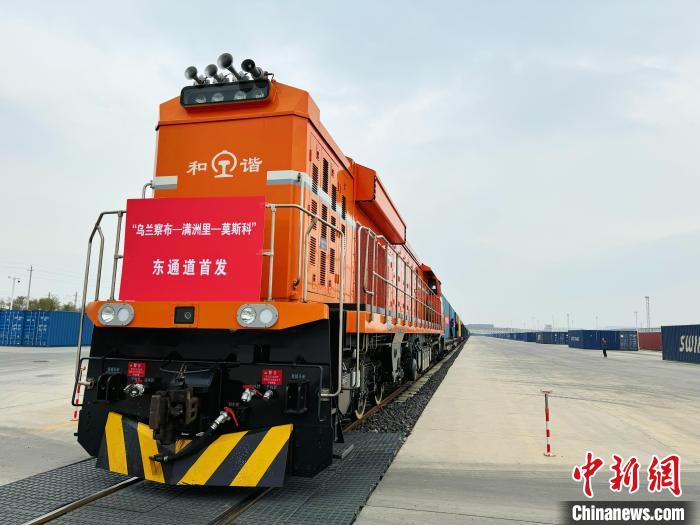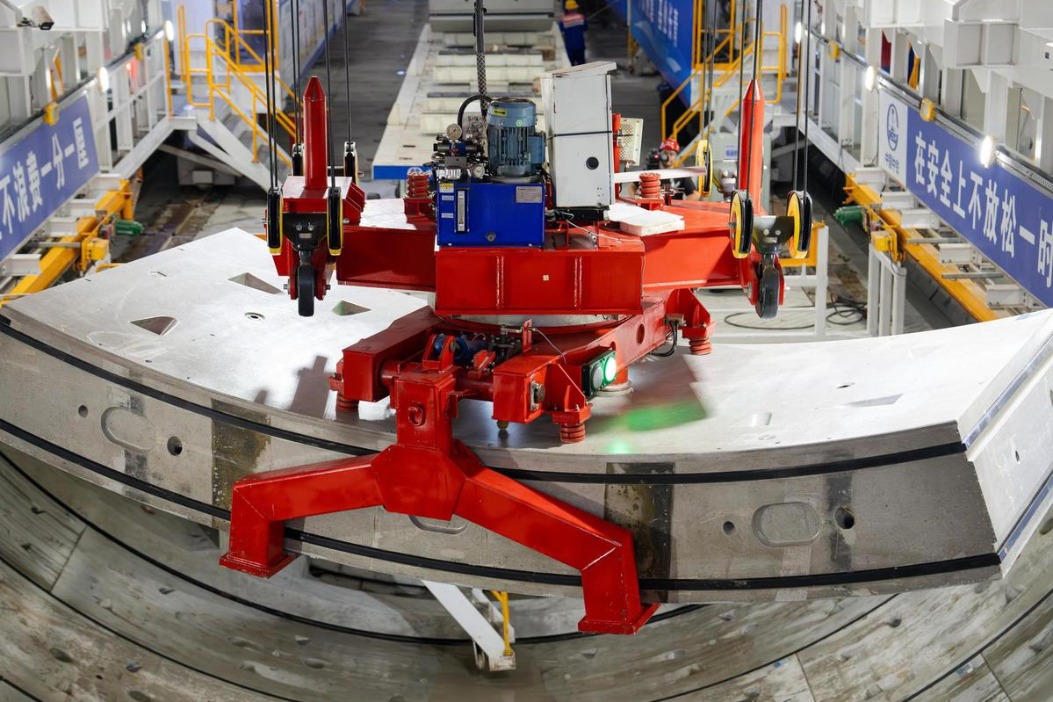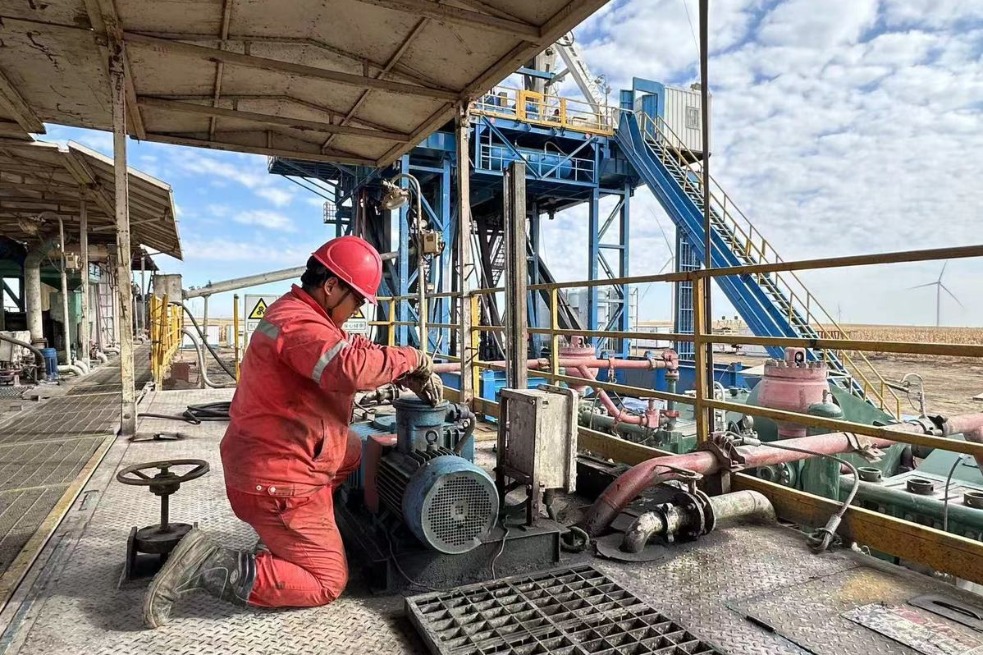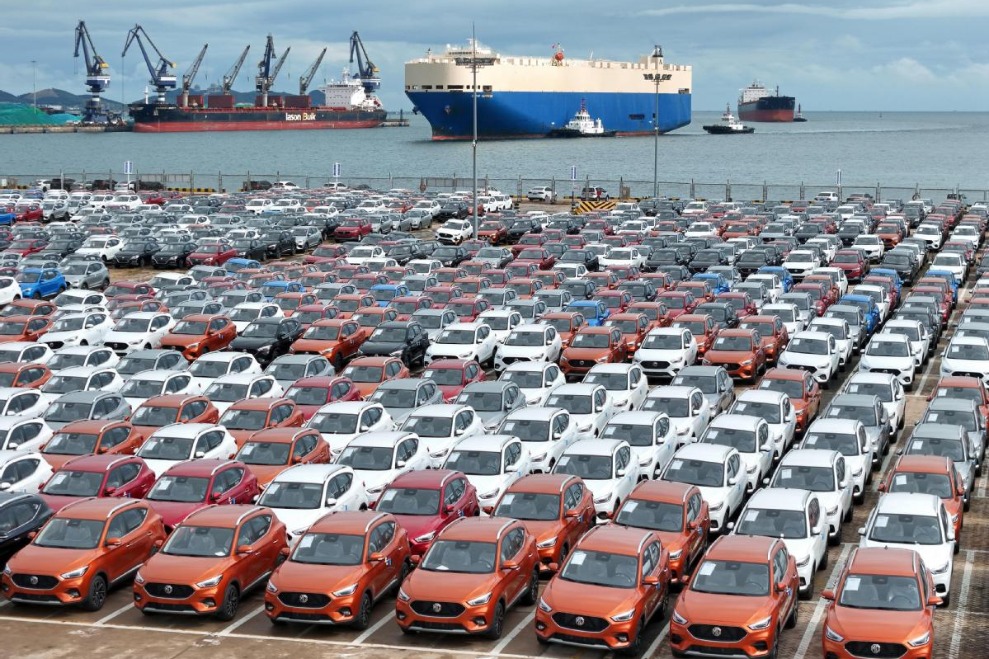North China expands trade via freight rail


With regular freight train service from Qisumu International Logistics Park in Ulaanqab, Inner Mongolia autonomous region, to Moscow now in operation, experts said the new route opens a trade channel for North China, and will further expand its exports with the support of the Belt and Road Initiative.
Launched on Oct 16, the route marks a new addition to the China-Europe freight railway lines originating from Ulaanqab, and is also the city's first eastbound route along this line.
Ulaanqab is one of the first 23 cities that was designated as a national logistics hub for the China-Europe freight train service.
Since the launch of its first China-Europe freight train in 2016, Ulaanqab has expanded operations to eight countries, with destinations such as Yekaterinburg, Russia and Almaty, Kazakhstan. The city now operates 22 international routes.
As of Oct 16, Ulaanqab's China-Europe freight routes have operated 806 trains with 33,000 carriages, with a total cargo value of $1.53 billion.
In recent years, Inner Mongolia has prioritized the development of the freight train network, focusing on Ulaanqab's role as a key gateway for northbound trade.
"The autonomous region aims to further enhance its participation in the China-Mongolia-Russia Economic Corridor by strengthening Ulaanqab's logistics capabilities," said Liang Jing, deputy general manager of Inner Mongolia Asia Europe International Logistics Ltd.
Citing the importance of the east route of the China-Europe freight service, Liang said, "The new route will increase railway capacity, optimize platform resources and improve service efficiency to further integrate Ulaanqab into the high-quality development of the BRI."
Liang said Ulaanqab's proximity to Ereenhot — only 327 kilometers away — also plays a big role in lowering logistics costs, as many of the products manufactured in Inner Mongolia are transported via these routes.
So far this year, the region's government has invested 800 million yuan ($112.4 million) in infrastructure to support Sino-European freight services, including the construction of a logistics center.
Major exports on this route from Inner Mongolia include sunflower seeds from Bayannuur, Chery automobiles from Ordos, and local timber, grain and oil products, which make up about two-thirds of the region's total goods transported. Local products account for up to 50 percent of the total freight, Liang said.
From January to September, 14,689 China-Europe freight trains were operated nationwide, marking a 13 percent year-on-year increase, said China State Railway Group Co Ltd, the nation's railway operator.
The trains transported 1.57 million TEUs (twenty-foot equivalent units) of goods, an 11 percent year-on-year rise.
In September, over 171,000 TEUs of products were transported by 1,633 China-Europe freight trains, marking 12 percent and 15 percent year-on-year increases, respectively. The freight service saw monthly operations of over 1,600 trains for seven consecutive months so far this year.




































